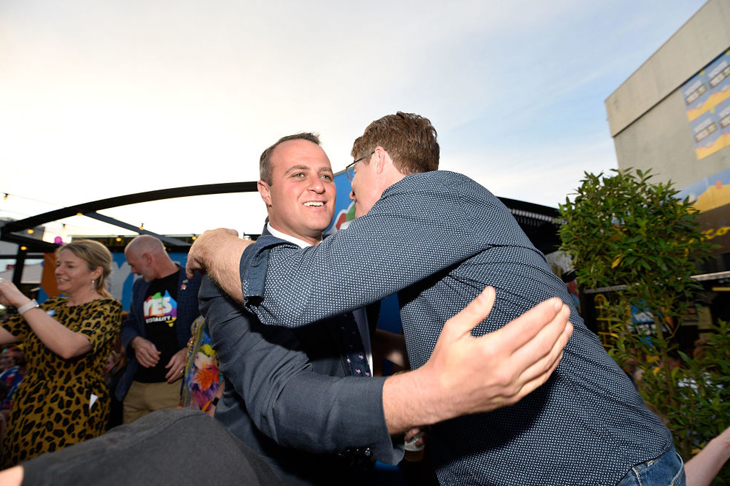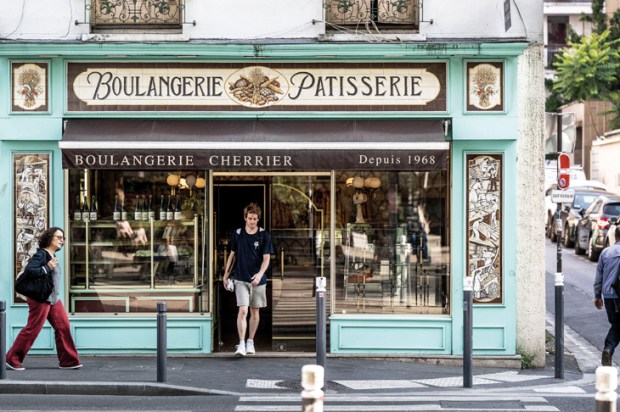You might remember that a year ago I criticised the decision of the Victorian government to settle a court action brought against it by a group of African youths alleging that the police force had engaged in racial profiling.
The claim always seemed to me to be utterly absurd, as what could possibly be wrong in the police using whatever means they had to identify the perpetrators of a crime, even if it was their race? But the government gave in and paid out a substantial sum in damages to avoid having to defend themselves. I warned at the time that this settlement would simply embolden African miscreants to continue on what is, in some cases, a regular course of criminal conduct. I regret to say that my prediction has come true, several times over. The most recent example is the riot that took place last weekend when a sizeable group of African youths rented a house in Footscray for a party and set about wrecking it. It was not enough that substantial damage was done by the occupants. When the owner was alerted to this outrage, she went to the property, saw what was happening and called the police, who at least turned up, but then stood idly by and refused to intervene while the Africans continued on their rampage.
The excuse for this inactivity was that the police could only get involved if there was evidence of damage; no doubt the smashing of windows, punching holes in walls, and wrenching out a television set and dumping it in a skip did not constitute a sufficiently obvious clue that damage was being perpetrated. So there was no police action, the Africans had another victory with no price to pay (they used an expired credit card) and we all go back to normal. Obviously those involved now know they are invincible because the authorities are now too scared to take the sort of action they would take if the offenders were Caucasian, or Asian, or Arab. In fact we are now too coy to talk openly about what is clearly going on. The Age, not surprisingly, is now so extravagantly politically correct on everything, that it was intimidated into writing a lengthy article about this violent event without either saying or hinting that the offenders were Africans or even ‘of African appearance’, the new anodyne description of Africans. Melbourne society is not as harmonious as it used to be; it is fractious. Obviously it is not universal but, as Peter Dutton rightly said, there really is a developing fear of going out at night because of the possibility of being beaten up. And we keep on force-feeding more Africans into our society to generate bigger problems, coming closer to permanently changing it and weakening the security of the people who live in it.
On present indications, it can only get worse.
One of the more unsavoury aspects of the same-sex marriage debate last year was the way that supporters of that cause behaved in the parliament, both in the chamber and the public galleries. We are told that the argument is over, we will get used to the change and that we should just move on. But the parliament was changed and in a retrograde manner during that debate, and not only have I not forgotten it, but I believe it imperative to do whatever we can to prevent a repetition.
If we do nothing, the parliament will continue to be tarnished as it was on that occasion. So I have taken up my pen and written to the Speaker of the House to ask him a number of questions. I have started by asking if the hollering and dancing in the galleries and on the floor of the House, the hugging, singing, cheering, flag and banner waving and celebratory conduct, among Members and between Members and the public in the galleries was out of order or contrary to the Standing Orders.
If so, why was there no caution or reprimand to those involved and if not why not? Specifically, I have asked if it is in order for a Member to speak directly to anyone seated in one of the public galleries of the House and to ask him a question, such as a proposal of marriage, for that person to answer from the public gallery and for the occupant of the chair to comment on the answer given by the member of the public. Most importantly, will the Chair permit the same conduct to be engaged in by MPs or members of the public in the future? The response will be instructive, so I will keep you posted.
Wiser heads than mine in education have probably said all that there is to say about Gonski 2.0. So it is difficult to be original. I started to read the report and got as far, as I often do in reading government reports, as the point where Mr Gonski said that he had a ‘vision’ about education. This always strikes terror in my heart as I know that visions never make anything better, usually things worse and always cost a lot of money. But I persevered. I have never seen a report so full of meaningless clichés and jargon, symbolising nothing. Starting with a ‘complex and rapidly changing world’ (get away with you!), followed by a ‘set of shifts’, ‘a range of stakeholders’, a ‘growth mindset’ or two and a garnish of ‘pedagogical models’, we find we need a Unique Student Identifier and a national evidence institute among the ‘global peers’ and ‘lots of drivers’. The problem is it does not tell you how to make kids learn more. But at least it has two blessings. I have never seen a report sink so quickly. And Kazakhstan is in no danger of being knocked off its perch in the education leagues tables.
Got something to add? Join the discussion and comment below.
Get 10 issues for just $10
Subscribe to The Spectator Australia today for the next 10 magazine issues, plus full online access, for just $10.
You might disagree with half of it, but you’ll enjoy reading all of it. Try your first month for free, then just $2 a week for the remainder of your first year.















Comments
Don't miss out
Join the conversation with other Spectator Australia readers. Subscribe to leave a comment.
SUBSCRIBEAlready a subscriber? Log in